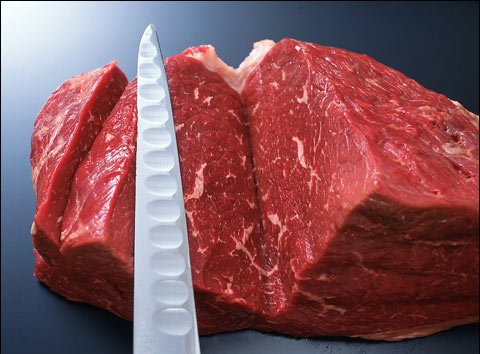Maize and rice seed production bases in 21 provinces welcome the "big test"
In order to strengthen the supervision of crop seed production bases, strengthen the source control of the seed market, severely crack down on illegal activities such as unlicensed production in seed production bases and infringement of variety licenses, strengthen the supervision of the seed supply market in autumn and winter, and ensure the safety of wheat production and use, the Ministry of Agriculture recently issued a circular requiring local agricultural management departments to actively carry out the inspection of seed production bases in 2016, while ensuring the supply of wheat seeds.
The circular requires the five provinces (autonomous regions) of Gansu, Ningxia, Inner Mongolia and Shaanxi to conduct a major inspection on the maize seed production bases in the areas under their jurisdiction. Jilin, Liaoning, Heilongjiang, Jiangsu, Zhejiang, Anhui, Fujian, Jiangxi, Hubei, Hunan, Guangdong, Guangxi, Chongqing, Sichuan, Guizhou and Yunnan 16 provinces (autonomous regions and municipalities) conduct a major inspection of rice seed production bases within their jurisdiction.
During the inspection, the office space of the enterprise or seed production organizer should be inspected deeply to check whether the production qualification meets the requirements, whether the production variety is legal, whether the production file is sound, and so on. It is necessary to go deep into the production base, check the production area, and take samples of production varieties at the same time. The base inspection adopts the combination of self-inspection of relevant provinces (autonomous regions and municipalities) and supervision and inspection organized by the Ministry of Agriculture. The Ministry of Agriculture will conduct supervision and spot checks on some areas on the basis of local self-inspection. The authenticity and transgene of corn and rice seed samples were detected. Local self-testing with testing ability, and those without testing ability can select suitable units to carry out testing from the qualified seed testing institutions assessed by the Ministry of Agriculture. The authenticity was detected by SSR molecular marker method, and the testing standard was SSR labeling method (NY/T1432-2014) and SSR labeling method (NY/T1433-2014). The standard samples collected by the Ministry of Agriculture were used for testing. Transgene detection uses a rapid detection method, and the inspection unit uses a test strip (Cry1Ac/Ab) for rapid detection of genetically modified components on the spot.
The circular also requires all localities to do a good job in ensuring the supply of wheat seeds. Hebei, Jiangsu, Anhui, Shandong, Henan, and Hubei provinces should take practical measures to strengthen the management of the wheat seed market and the regulation of supply and demand within their jurisdiction, so as to ensure the quality, safety and orderly supply of wheat seeds.
All localities should organize forces to strictly inspect the wheat seed market, go deep into the wholesale market and operate stores, and comprehensively inspect seed labels, record information, operating accounts, approval or not, authorization, and the authenticity of varieties. The competent agricultural departments at all levels should earnestly strengthen the dispatching and analysis of the quantity and price information of wheat seeds planted in autumn and winter, accurately grasp the variety, quantity, price, and the relationship between supply and demand, and release market information in a timely manner. According to the pre-scheduling situation, we should continue to do a good job in the docking of production and demand and the adjustment of surplus between regions and varieties, so as to ensure an orderly supply of seeds for production.
Seed management agencies at all levels should guide enterprises to strictly control seed quality, conduct comprehensive quality testing of all batches of seeds, resolutely prevent unqualified seeds from entering the market, guide enterprises to strengthen seed processing and coating treatment, and improve seed quality; rational distribution of variety planting structure, guide farmers to choose suitable varieties reasonably Supervise and urge enterprises to strengthen technical services, guide farmers to sow seeds in an appropriate amount, expand the proportion of seed dressing with chemicals, and improve sowing quality.
- Prev

Late-maturing varieties: come late but sell well
Late-maturing varieties: come late but sell well
- Next

Instead of going up, the price of beef goes down. A cow makes a profit of less than a thousand yuan.
Instead of going up, the price of beef goes down. A cow makes a profit of less than a thousand yuan.
Related
- A course of planting techniques and methods on how to grow carrots
- How to plant the latest tulips?
- Is it better to pick tea in the morning or in the afternoon? When is the best time for tea to be picked? what is the third or fifth tea?
- Launch Yuanxiao Happy combination Haocha + Tea Yuan healthy Taste
- Penghu Tourism "Fireworks 20 Parade with You"
- 2022 West Lake Happiness holds "Digital Revitalization Voucher" and draws iphone13 and laptop.
- Banqiao Fuzhou social houses are designed to change start-up combined with police elimination to create a safe and livable environment
- The convenient measure of "mechanical weeding" in Xinbei has been abused and the Agriculture Bureau has imposed heavy penalties on the illegal land consolidation.
- Changgeng University Joins Hands with Four Memory Factories to Rescue Memory Talent Shortage
- The list of Taiwan's top 100 MVP managers is listed by the Director-General of the Farmers' Association of Sanxia District.

